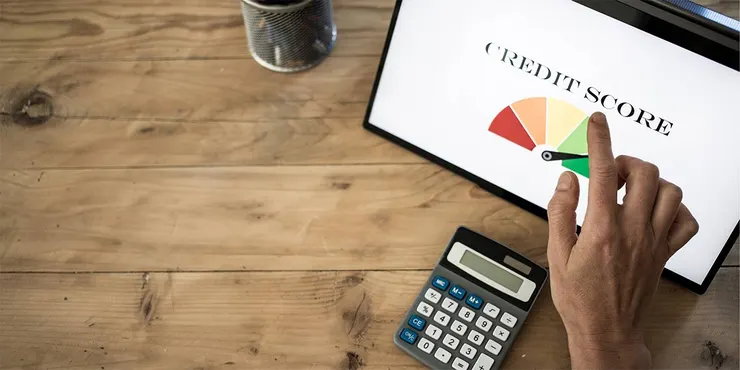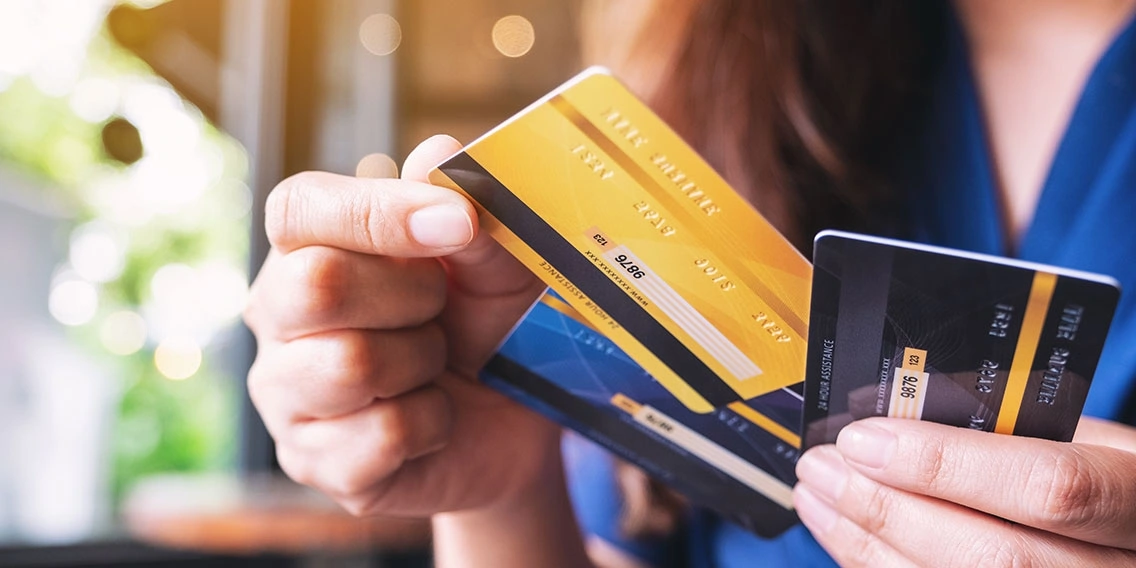FINANCE
What Does It Mean to Default on a Loan?
EXPECTED READ TIME: 5 MINUTES
When you pay for purchases with a credit card or take out a loan, you agree to pay back the credit card company or lender by making payments within a specific timeframe. Late payments can affect your credit score, but defaulting is even more serious. Learn what it means to default on a loan and what to do if you're having trouble making payments.
What Defaulting on a Loan Means — and What Happens if You Do
Defaulting means you fail to pay back a loan. This is a breach of contract that allows the lender to take legal action against you. It's possible to default on any type of debt, including credit cards, unsecured loans, auto loans, mortgages, and more.
The first consequences include late fees and being reported to the three major credit bureaus (Equifax, Experian, TransUnion). Again, late payments are reflected on your credit score, which could make it difficult to qualify for more loans in the future.
After continued nonpayment, the lender could begin collection procedures, including making phone calls and visits to your home to collect the money you owe. Lawsuits and the repossession of items you purchased with the loan, such as your car or home, come next.
Defaulting on a loan could follow you into retirement by lowering your social security payments and rescinding tax refunds. It could even push you into bankruptcy.
Defaulting on Different Types of Loans
The specific consequences of defaulting on a loan vary depending on the type of debt in question. Here are some of the most common examples.
Defaulting on a Credit Card
Minimum credit card payments are required once a month. After your first missed payment, you're charged a late fee, and the money you owe is subject to interest. After two missed payments, your annual percentage rate (APR) goes up, increasing the amount you owe, along with the late fees.
At that point, your delinquency is reported to the credit bureaus, which shows up in your credit history and lowers your credit score. You may start receiving phone calls as the credit card company attempts to collect the debt. By then, you'll probably have racked up hundreds of dollars in late fees and interest. You may receive a settlement offer from the credit card company after 90 days.
In most cases, you're considered to be in default if you don't make arrangements with the credit card company after six months. Your account may be turned over to a collection agency, which may sue you or force you into bankruptcy. Your credit history and credit score may likely be severely damaged by that time.
Defaulting on an Unsecured Loan
This type of loan requires more faith on the part of the lender because you have no collateral to secure the loan. One example of an unsecured loan is student debt. This is a heavy burden considering the potential size and timing of the loan. After all, students use these loans to pay for school, often when they have no source of income.
Fortunately, student loan lenders tend to understand this and are usually willing to work out a reasonable payment plan. There are even programs for student loan forgiveness, payment deferral, and forbearance. However, if you default on a student loan, it could have ramifications into retirement.
Defaulting on an Auto Loan
Unlike an unsecured loan, an auto loan is secured by collateral — your car. Along with the damage to your credit history and score as seen with other types of loans, you also risk having your car repossessed if you miss more than one payment.
If your car is taken, it'll be sold at auction. If it sells for less than what you owe, you're responsible for paying the difference, plus expenses and fees, or you risk a lawsuit.
Mortgages
A mortgage is another type of secured loan. This time, if you default, you could lose your home. Before the lender can force you out and foreclose on your house, they must file a document with the court called a Notice of Default.
If you can't reach an agreement with the bank to bring your home loan up to date, you'll be evicted. You may even be required to continue making payments, plus expenses and fees, if the home doesn't sell for enough money to pay off your debt.
What to Do if You're Having Trouble Making Loan Payments
Rather than default on a loan, it's always better to work with your lender to find a solution you can both agree on. The faster you take action, the less damage will occur to your finances and credit score. Here are some ways to prevent defaulting on a loan:
- Try to pay at least the minimum amount within 30 days of the due date because slightly late is better than very late.
- If you foresee trouble making upcoming payments, contact your lender before the due date. They may change your due date or let you skip a payment.
- Consolidate your debt with a low-interest personal loan. Debt settlement is also an option.
- Refinance your loan to a lower interest rate.
- If you can't afford car payments, consider selling your vehicle and switching to a less expensive car. Or look into alternatives like public transportation, if available.
- Federal student loans may qualify for a deferment, which allows you to stop making payments during times of unemployment or other financial hardships without penalty. Talk to your lender for more information.
- Federal student loans may also qualify for income-based repayment programs, which are designed to keep your payments in line with your earnings. Your lender will have more information.
The best way to prevent defaulting on a loan is to bolster your savings before you go into debt. You can also set up an emergency fund to help cover expenses like loan payments when unexpected costs arise.




